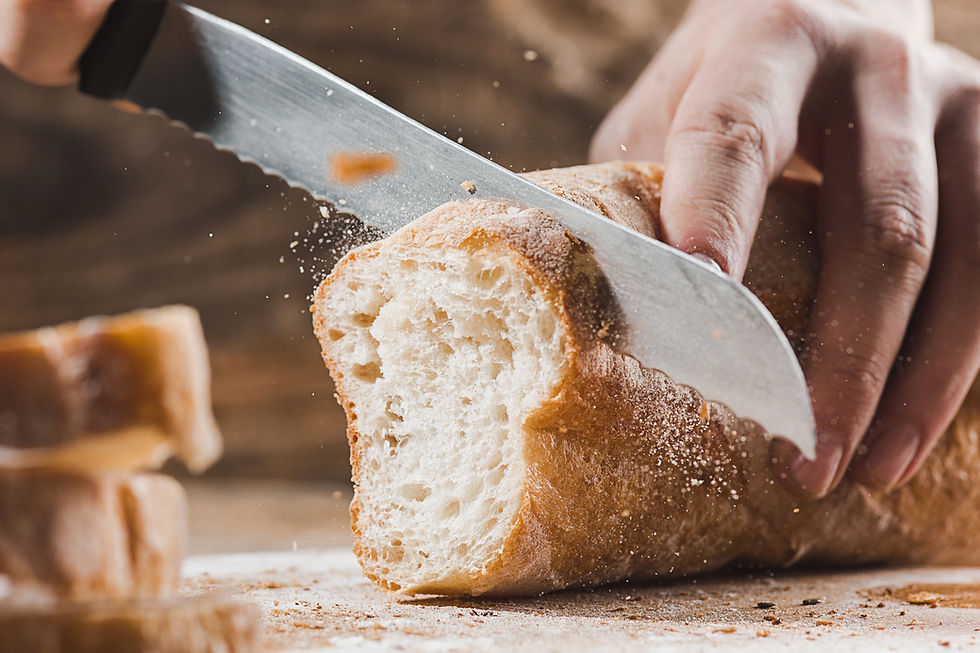Nutrition is one of, if not the most important aspect of health and fitness. Regardless of your goal. If you want to lose fat, build muscle, improve how you feel, reduce inflammation, and much more, your nutrition needs to be on point for what you want to achieve.
But for a lot of people nutrition is a bit of a mine field. Especially the amount of fad diets and new diet that have appeared over recent years. There's a lot of different terms and ideas being thrown around.
But a lot of people don't know the basics of nutrition. You've probably heard the terms said by someone or read it someone, but what are they and what do they mean? I'm gonna try to clear up and explain the fundamentals that are involved in every diet.
Every meal you eat is mainly made up of Macronutrients. Which is what we are going to cover.
So what are Macronutrients?
Macronutrients (or Macros for short) are a group of nutrients found in food that as fuel. The three macronutrients are Protein, Carbohydrates and Fats. No matter what sort of training, lifestyle or diet you follow, all three are essential in our diets for a healthy and happy life.
I'm gonna touch on the basics of each one and explain what exactly they are, why you need them and good healthy sources of each one
Protein

Protein is the building blocks of your body. The body needs protein to repair and maintain itself. Every human cell contains protein. It is needed in the diet to help repair cells and make new ones. It is extra important for children, adolescence and pregnant woman.
Protein is typically found in animal sources but can also be found in plants too and grains. So you don't need to eat animal products to get protein, although they are typically the most efficient source. Some sources of protein are:
Chicken and Turkey
Beef
Pork
Pinto beans, kidney beans, black beans and any other type of beans
Nuts and seeds
Tofu and soy protein products
Low fat Dairy products
You have Complete proteins which are foods that have all 9 essential amino acids. Most, if not all, are animal based foods. Then there are Incomplete proteins. These are foods that contain protein but have a lower value and lack one or more essential amino acids.
Protein requirements vary from person to person depending on how active you are but the average person should get 0.8g per kg of body weight.
Carbohydrates
Carbs are the best source of energy. This is due to the fact it is more easily converted into glucose than protein and fats. Too much carbs can upset the balance of the body's blood sugar levels. This can make you feel irritable, tiredness and effect your mood.

Carbs get digested and utilised in the body in different ways.It gets sent to the liver and muscles to be stored as glycogen and used as fuel.
Carbs and fats contribute to fuelling normal activities. But as the activity gets more intense, more carbs are used.
There are two types of carbohydrates, Simple carbohydrates and Complex Carbohydrates. Simple carbs are fast acting like sugar.
Complex carbs are slow release such as oats and sweet potatoes. Fruits are Simple carbs on terms of their molecule structure but are actually slow release energy.
Plus you get vitamins and minerals in fruit that you don't get from eating refined sugar. You definitely want more complex carbs in your diet. Though the fast acting ones are good for an energy boost before a workout. Examples of complex carbs are:
Whole grain bread and pasta
Brown Rice
Barley
Potatoes
Corn
Beans, chick peas and lentils
Fats
Fats are a major source of energy. It helps the body absorb vitamins and mineral. Plus is makes food taste good. They are a very important source of calories and nutrients for infants and toddlers. Fatty acids are the acids produced when fats get broken down.
These are typically "good fats". These can be used for energy by post cell types. Fatty acids are good for your skin, help prevent early ageing and help with weight loss by helping the body process cholesterol.

They also help the arteries to get rid of cholesterol build up. They also help adrenal and thyroid glands, which also help regulate weight loss.
You hear a lot about how bad saturated fats but what about unsaturated fats? There are a lot of benefits to unsaturated fats. Diets high in unsaturated fats have shown to lower levels of LDL (low density lipoproteins ), cholesterol and plasma triglycerides (fat in the blood), and therefore reduce the risk of heart disease.
Good sources of fats are:
Meat - beef, pork and lamb
Poultry - chicken and duck
Dairy - milk, cheese and yogurt
Eggs
Coconut oil
Olive oil
Avocado
Nuts and Seeds
Whatever diet plan you want to follow, these three macros will play a big part. Hopefully this cleared up some terms and that you have a better understanding of what each of these are and what role they play in your diet.
Comments